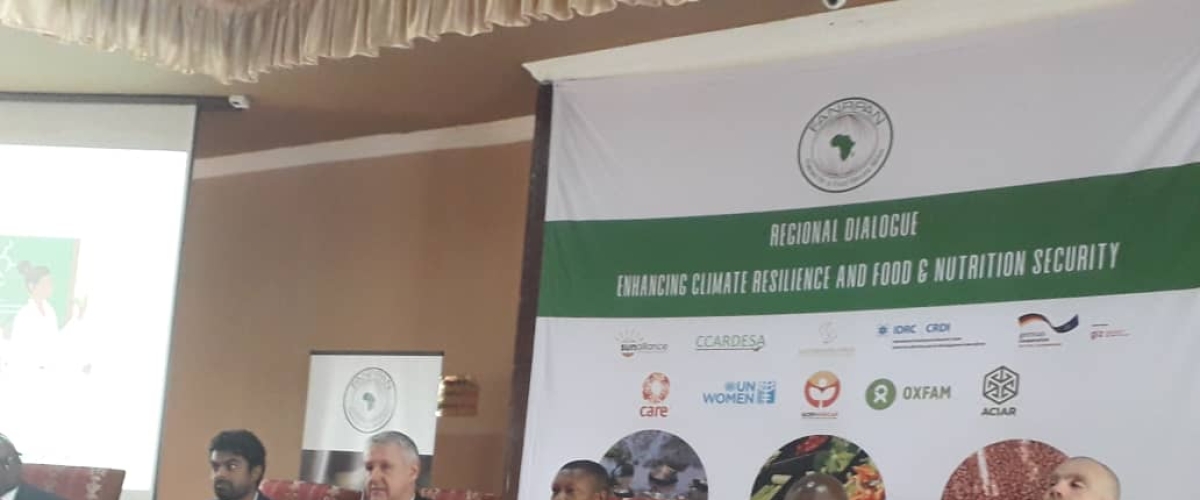
The Centre for Coordination of Agricultural Research and Development for Southern Africa (CCARDESA) is participating in the 2019 Food, Agriculture and Natural Resources Policy Analysis Network (FANRPAN) Regional Policy Dialogue which is taking place in Kigali (5-7 Nov, 2019). The theme of the dialogue is “Enhancing climate resilience and food and nutrition security”.
In response to a presentation provided by Dr Marc Schut of the International Institute for Tropical Agriculture (IITA) on Scaling of proven innovation (on “How do we support desirable scaling of innovation in food systems”?) CCARDESA represented by Dr Baitsi Podisi participated in an engaging panel discussion around the subject.
In recognition of the impact of climate change in the SADC region, CCARDESA and its partners are working through partnerships and collaboration to deliver climate-relevant interventions. The organisation works with government organisations, non-state actors in agriculture and the private sector. CCARDESA engages routinely with the CG Centres and other partners to implement programmes at a local level. CCARDESA undertakes advocacy to support policy development in response to identified needs.
CCARDESA curates and disseminates agricultural information and knowledge through its various platforms which includes social media and its discussion groups and website which it has improved through GIZ support. Several information and knowledge products particularly on climate smart agriculture are routinely shared through the CCARDESA platforms. Some of the products come from CCARDESA and from partners like research centres (national and regional).
Podisi shared that recently CCARDESA has developed a new strategy to take into account current priorities including climate change. He outlined the six themes covered by the new strategy, namely: (i) Agricultural productivity and food and nutrition security; (ii) resilience to emerging agricultural risks: environmental, climate change and transboundary pests and diseases; (iii) Commercialisation of the agricultural sector and market access; (iv) Women, Youth and social inclusion; (v) Knowledge management, communication and policy support; (vi) Capacity strengthening of CCARDESA and AR4D institutions.
He stressed that climate change affects us across political boundaries. Therefore, we can only be able to tackle its effects by working together as various stakeholders. He also indicated that recently, the EU has provided a grant of 30 Million Euros through IFAD to support FARA and regional research organisations to work together to promote climate relevant interventions. For example to facilitate policy dialogues such as this one, and to build capacity to provide foresight about upcoming risks in agriculture (e.g. disaster).
On sharing experiences and lessons learnt on supporting agricultural research and adoption of technologies and innovations. He opined that conducive policies and programmes are necessary to facilitate adoption of improved practices. Certain incentives such as input subsidy schemes appear to facilitate the uptake of certain practices supported under such schemes.
It was further indicated that CCARDESA has also scored some success in lobbying some regional countries to invest more in agricultural research and development through participating in the regional Agricultural Productivity Programme (APPSA) which is now expanding to other countries. Thus demonstrating a willingness by some regional countries to invest more in agricultural research and development to fulfil their CAADP commitments.





